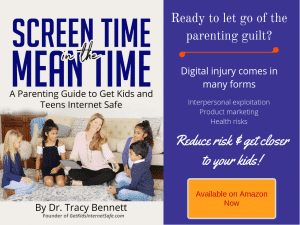
The first time I experienced the hookup culture was my first week of college. I was living in the dorms and everybody felt liberated, taking advantage of having no parents around, partying, drinking, smoking, and having sex. I remember watching freshman in their evening outfits make their walks of shame back to the dorms early in the morning. A friend told me how she woke up in an apartment she didn’t recognize. She was scared and left the apartment frantically. I felt sorry for her. I was shocked and confused about how my friends were treating sex so casually.
Hookup Culture
Hooking up is a term used by college students that has a wide variety of meanings. Some people use it to mean kissing, whereas others say it means sex. It turns out that college students themselves don’t really know what it means exactly (Currier, 2013). A survey by McHugh and colleagues (2012) found that 48% of male and 33% of female college students reported that hooking up means having sex.
Sociologist Lisa Wade wrote a book called American Hookup: The New Culture of Sex on Campus. Wade spent five years investigating hookup culture in universities. She explains that a hookup is “a meaningless, spontaneous act of either kissing or having sex with someone to win the approval of friends, bragging rights, and/or improve a college student’s status quo” (Vedantam, 2017).
Hooking up seems to be taking over traditional dating. In a recent survey, 58% of students surveyed from 19 universities reported that they had hooked up with someone by their senior year of college (Monto et al., 2014). Hooking up is particular popular at universities, because students are exploring their identities and having fun outside of their parents’ rules with no rush to get married; no shame, no consequences. Hookup culture fits like a puzzle piece for the college lifestyle. It may sound harmless, but I believe that hooking up can be detrimental.
Your Tween’s Love Life
Dr. Bennett’s article “Hey Dad, Your Twelve Year Old Daughter Has a Nude Out” revealed that the hookup culture often starts as early as middle school. She found that high school boys were grooming middle school girls on social media instant messaging and text to send the nude images of themselves. These nude images were then shared and posted without consent among unknown others locally and on the web. For the local teens, they were valued, collected, traded, and redistributed multiple times over years like Pokemon cards.
Although many young people argue that hooking up is a fun and a harmless way to learn about intimacy and relationships, there are downsides to casual sex. For instance, some teens find causal sex distressing and may feel embarrassed or weak for wanting a more meaningful connection with their partner (Vedantam, 2017).
It has been argued that men generally have an easier time with hooking up than women (McHugh, 2012). As a result, girls will work hard to “fit in” and please the cultural ideal of emotionless hookups, even though they secretly feel ashamed, unfulfilled, conflicted, and embarrassed. After all, sex is often an exercise in bonding and attachment, triggering the release of the neurotransmitter oxytocin, which is responsible for feelings of love, attachment, and even symptoms of obsessive-compulsive disorder. Trying to not bond while having sex with somebody can be very difficult for some people. Whether to hookup or not is a very personal and meaningful decision for college students. But for our tweens and teens, it can be physically and emotionally dangerous.
How can parents help?
Be a good listener and teach your teen your family’s values and beliefs about sex. Start early.
Bring up the topic often. Provide accurate sex education. Listen to your child. Get an idea about what they think. Don’t assume they have absorbed family values from thin air. Family values and sex education is best provided by the people whom love them the most, their parents.
Teach how intimacy differs from sex.
Unfortunately, many kids learn about sex from viewing Internet porn. Don’t let this artificial portrayal of sex go uncorrected. Having sex in order to carve a reputation or live up to demeaning portrayal of a meaningless physical act can be emotionally destructive, especially to a teenager. Teach your child that sex is a profoundly intimate act between mature, caring partners. That means it is best to wait and experience it with somebody you love and trust when you are mature enough to handle the complexities in the relationships that will follow. Intimacy requires a lot of maturity and communication.
Explain how social media differs from reality.
Social media is everywhere whether you like it or not. We love it, because it helps us connect with others during our overtasked lives. Connecting with peers is critical for healthy adolescent development. Explain how social media glamorizes and misrepresents a person’s actual life. Collaborate on how to avoid typical pitfalls. GKIS articles help with that!
Build your teen up by letting them know they are far more than a sexy image.
Self-esteem starts with how we treat ourselves. Keep a lookout for self-deprecating comments in your household (like “I’m so fat”). Kids learn these bad habits, which can be psychologically detrimental over the long term. Be generous with authentic compliments and encouragement. Remind them that every relationship has impact on one’s quality of life. That means taking the time to choose peers who treat us well and help us strive to be the best we can be. Include your teen’s friends in family activities so they feel supported in their friendships and so you maintain influence.

I’m the mom psychologist who will help you GetKidsInternetSafe.
Onward to More Awesome Parenting,
Tracy S. Bennett, Ph.D.
Mom, Clinical Psychologist, CSUCI Adjunct Faculty
GetKidsInternetSafe.com
Works Cited
Currier, D. M. (2013). Strategic ambiguity: Protecting emphasized femininity and hegemonic masculinity in the hookup culture. Gender & Society, 27(5), 704-727. doi:10.1177/0891243213493960
McHugh, M. C., Pearlson, B., & Poet, A. (2012). Who needs to understand hook up culture?: Understanding hookup culture: What’s really happening on college campuses. Sex Roles, 67(5-6), 363-365. doi:10.1007/s11199-012- 0172-0
Monto, M. A., & Carey, A. G. (2014). A new standard of sexual behavior? Are claims associated with the ‘hookup culture’ supported by general social survey data?. Journal Of Sex Research, 51(6), 605-615. doi:10.1080/00224499.2014.906031
Vedantam, Shankar. (Host). (2017, February 14). Hookup Culture: The Unspoken Rules Of Sex On College Campuses [Radio broadcast episode]. http://www.npr.org/2017/02/14/514578429/hookup-culture-the- unspoken-rules-of-sex-on-college-campuses.
Photo Credits
Young Couple Undressing Each Other by PhotoMediaGroup, BY Shutterstock, Inc.
Don't worry, we will never spam you.









